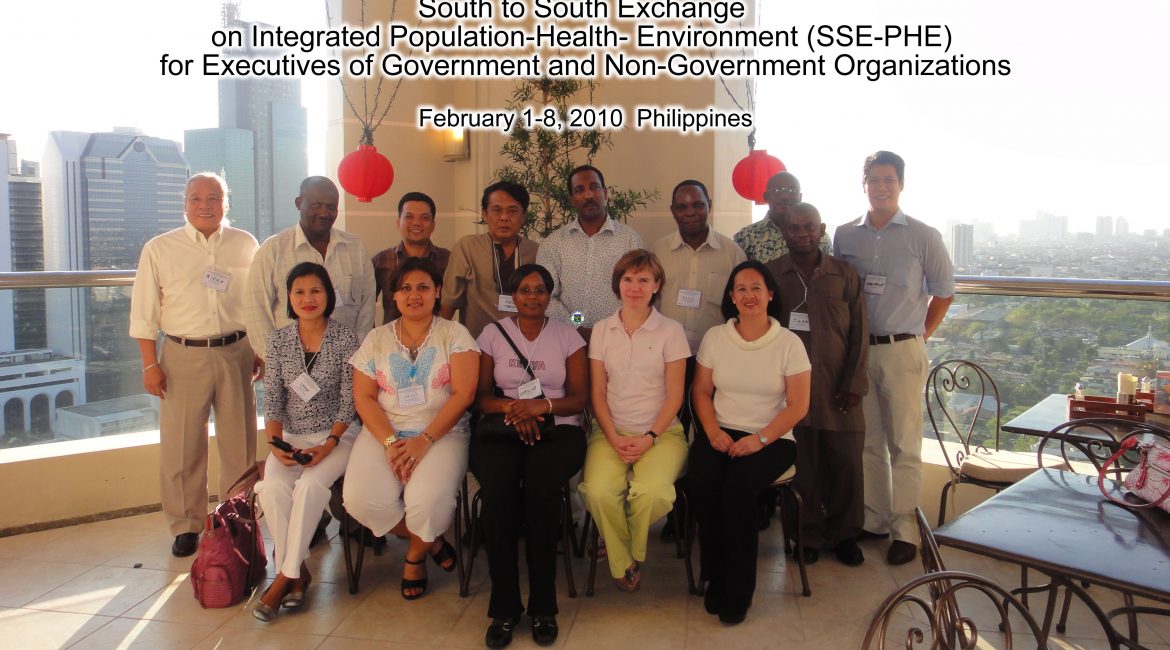PRORGAM DESCRIPTION
The USAID-supported Building Actors and Leaders for Advancing Community Excellence in Development (BALANCED) Project is a global initiative that promotes and supports integrated population, health and environment (PHE) programs worldwide. The project is implemented by the Coastal Resource Center of the University of Rhode Island (CRC-URI) with PATH Foundation Philippines, Inc. (PFPI) and Conservation International (CI) as partners. BALANCED strategies and activities contributes towards three objectives: 1) building capacity for integrated PHE, 2) sharing PHE knowledge and tools and 3) scaling up PHE field activities in key biodiversity conservation areas.
The south-to-south exchange (SSE) on Population-Health-Environment (PHE) is a cross-institutional learning opportunity targeted to executives of relevant organizations who are interested in pursuing integrated programming in conservation, health and family planning. Participants will be selected based on their position in the organization and ability to make decisions about resource allocation, site selection and program implementation for PHE activities in their own settings.
The exchange will take place in the Philippines and spotlights the experience of a “gold standard” PHE approach called Integrated Population and Coastal Resource Management (IPOPCORM) managed by PATH Foundation Philippines (an NGO) and implemented in partnerships with local government units and community based organizations. PATH Foundation Philippines Inc. (PFPI) is an NGO based in Manila that operates PHE projects in high-growth biodiversity-rich areas of the Philippines. PFPI has extensive experience in organizing cross-institutional learning opportunities for national decision makers, local chief executives and NGO leaders. Over 300 policymakers, municipal mayors, councilors and NGO executives have participated in PFPI’s exchange programs, and shared information, lessons and strategies with their counterparts from other parts of the Philippines and other countries in the region, such as Thailand.
IPOPCORM’s experience demonstrates that sustainable approaches to PHE require collaboration between government and non-governmental organizations (GO-NGO) and local communities. As such, the SSE-PHE seeks to build relationships among teams of GO-NGO executives from the same countries while simultaneously exposing them to a successful PHE model and the opportunity to jointly develop a plan of action for adapting best practices in PHE service delivery for replication in their country settings.
A GO-NGO team was selected from four focus countries prioritized by the BALANCED Project in Eastern Africa and key participant/s from the Coral Triangle region.
The objectives of the south-to-south exchange are the following:
- Promote alliances and teamwork among GO and NGO executives from BALANCED focus countries
- Broaden participants’ understanding and appreciation of integrated approaches to population, health and environment
- Enhance participants’ knowledge of community-based and integrated PHE systems and service delivery mechanisms
- Encourage joint planning among GO-NGO executives for site-specific PHE actions
- Foster commitment to PHE among the GO-NGO executives and willingness to mobilize local resources
- Strengthen the capacity of GO-NGO executives to act as champions and leaders of integrated PHE programs
News link
Bohol’s Danajon Reef chosen as learning site in PHE confab – The Bohol Chronicle. Bohol’s Danajon Reef showcased as PHE learning site – The Bohol Standard.

